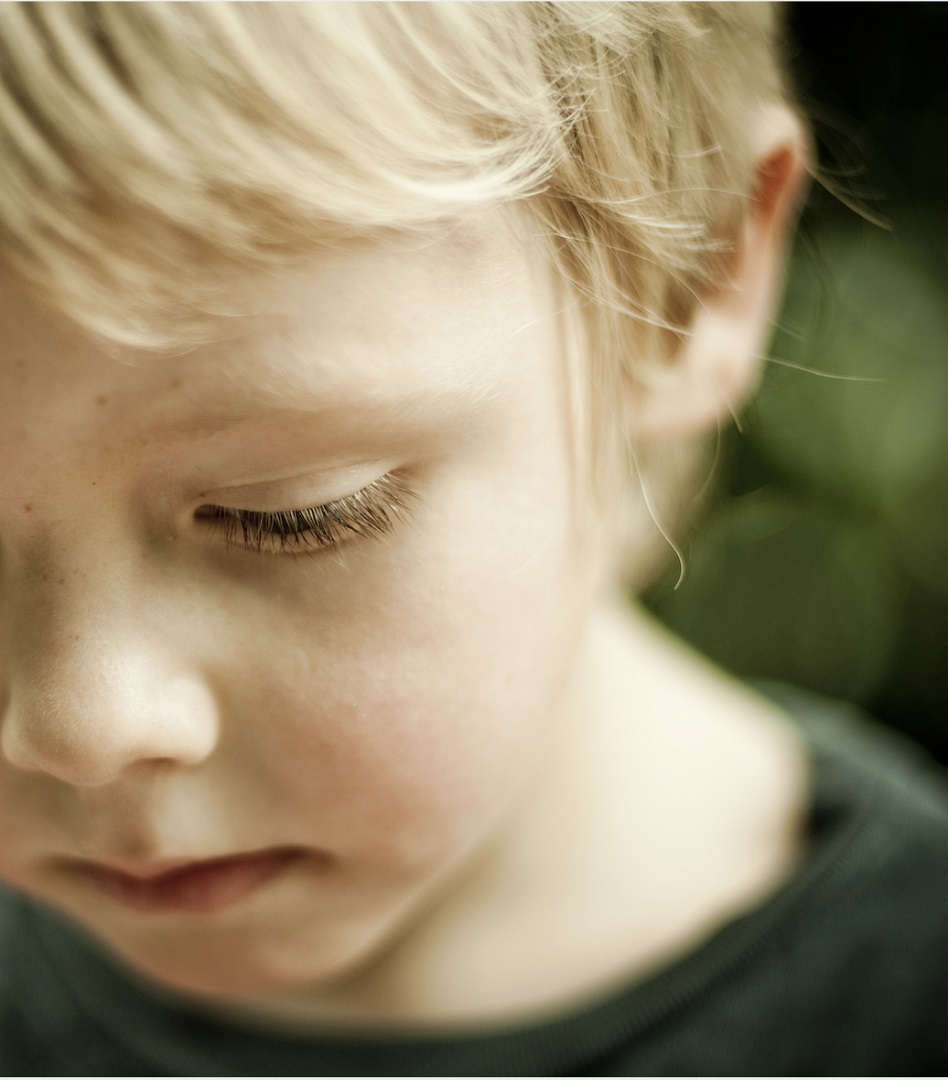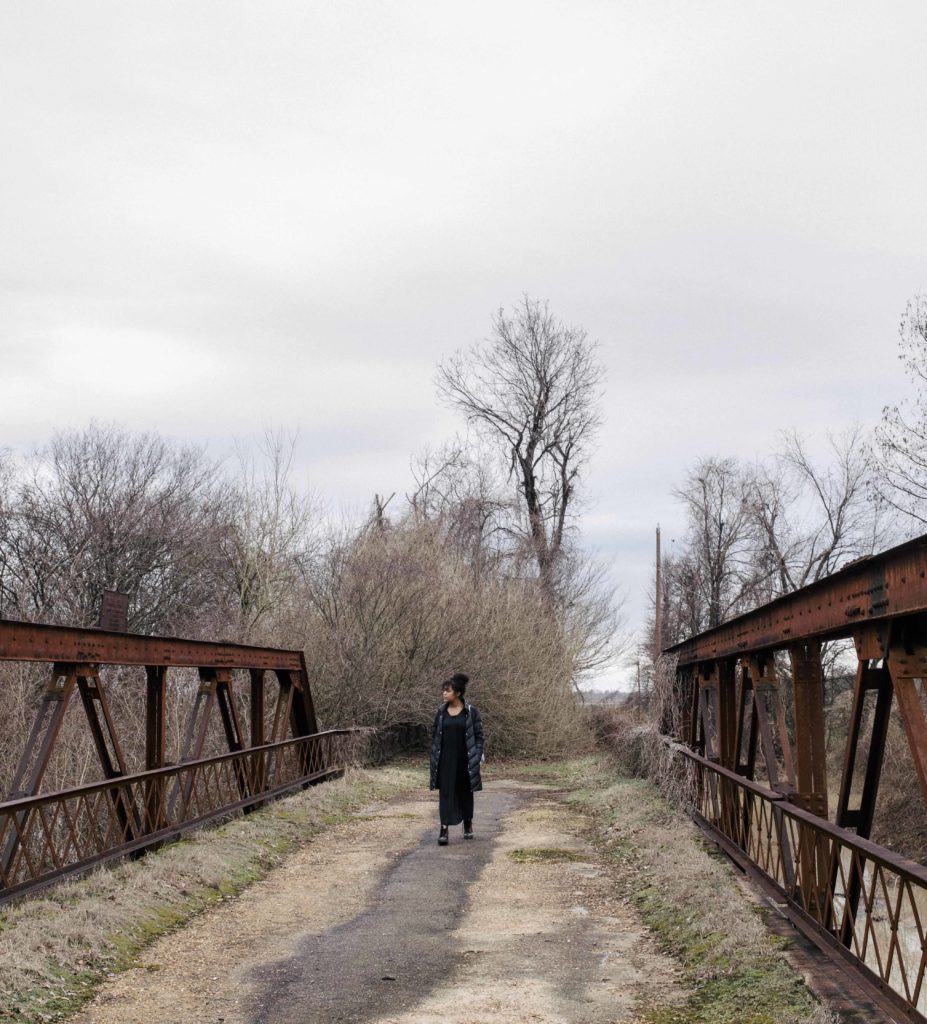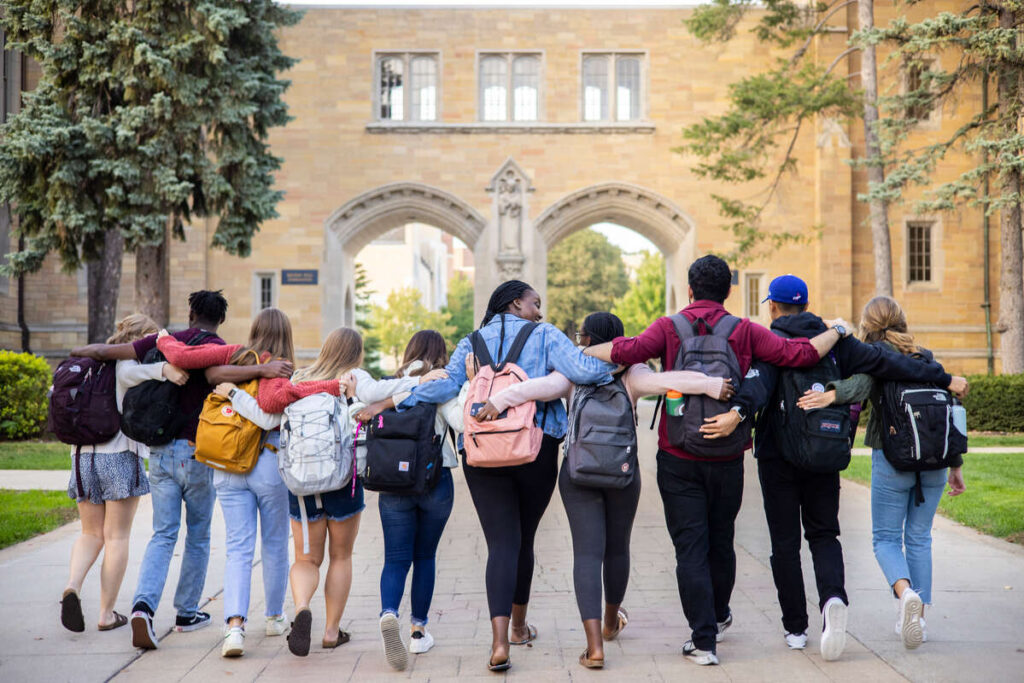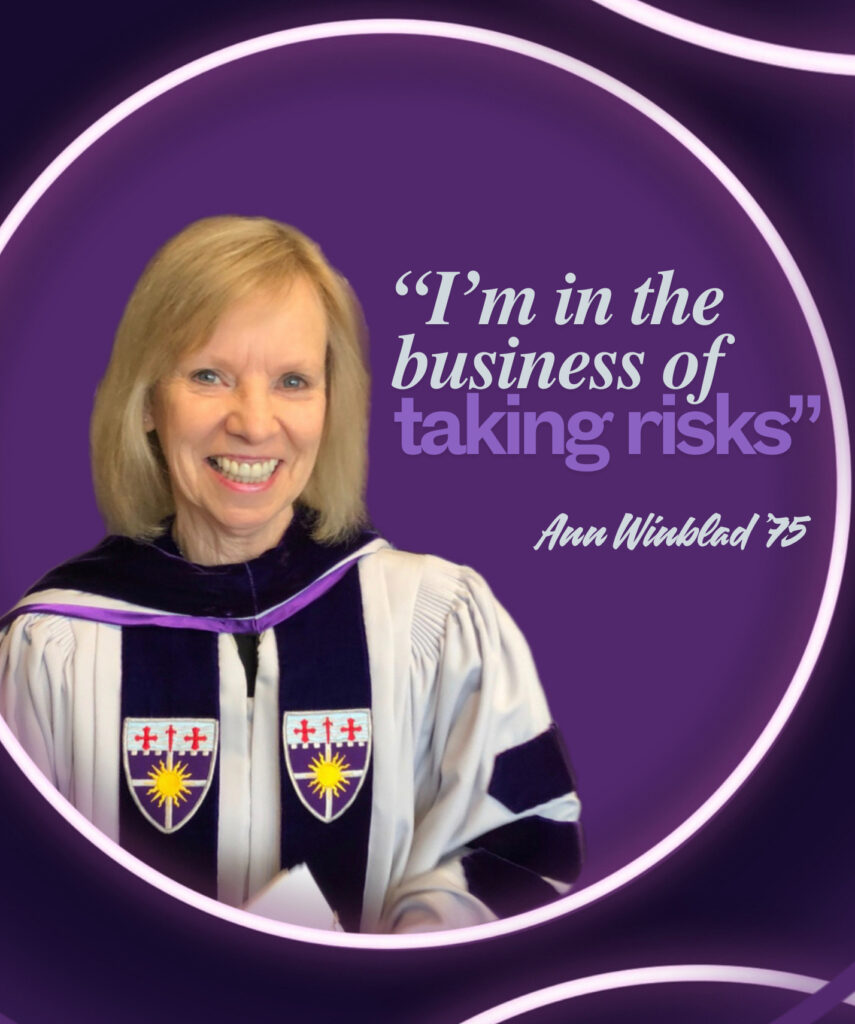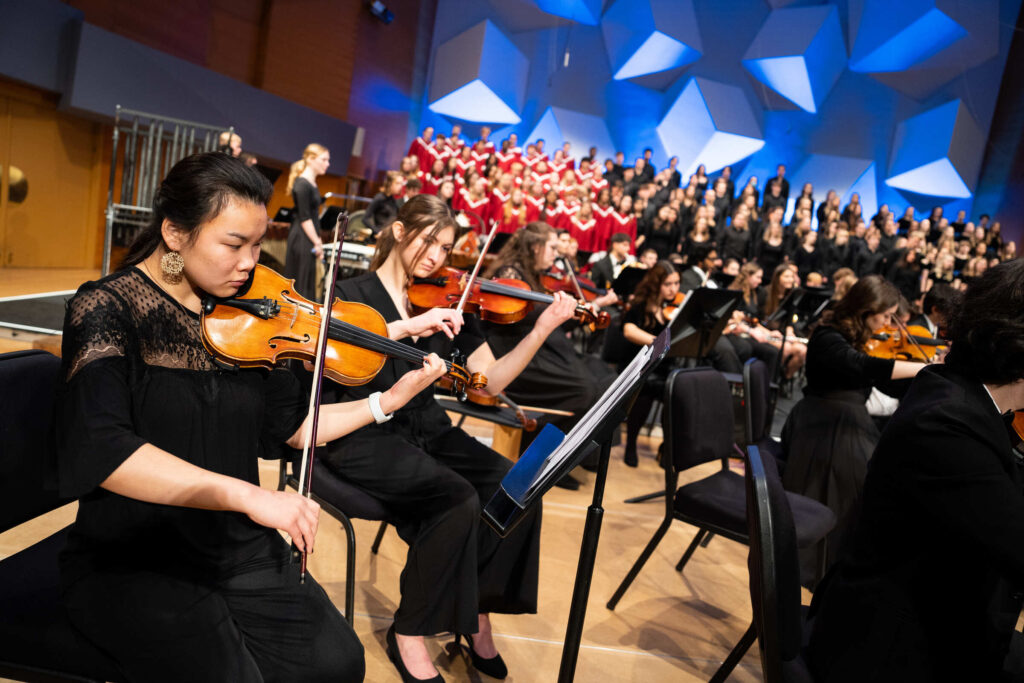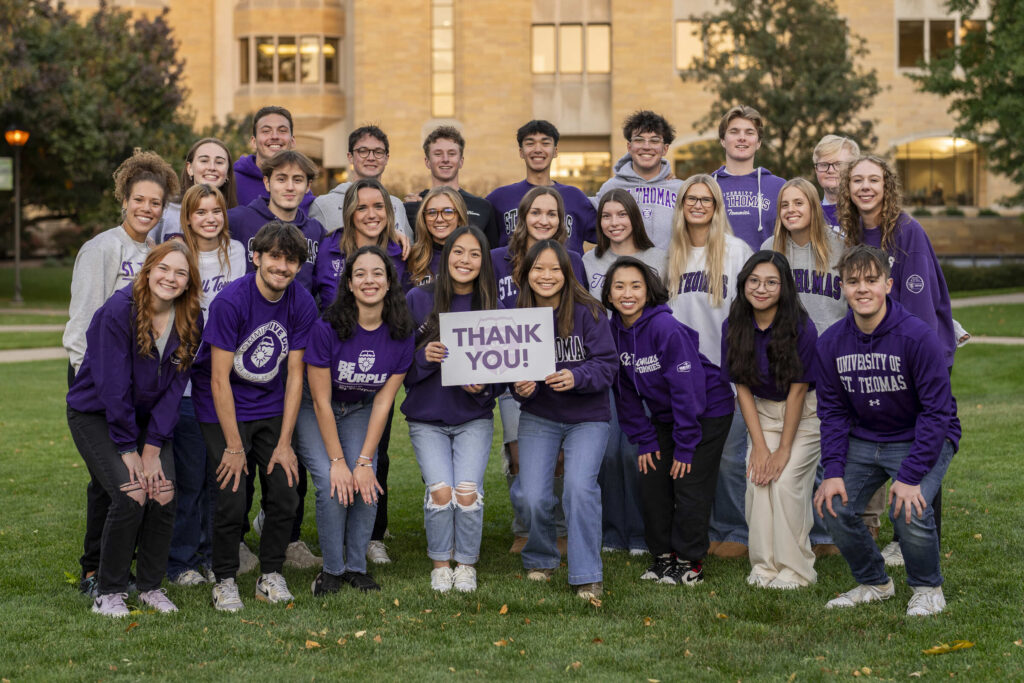This story is featured in the fall/winter 2020 issue of St. Thomas Magazine.
Update: The School of Education and the Morrison Family College of Health have teamed up to create the Minnesota Institute for Trauma-Informed Education (MITIE). The institute will help to develop, support, and advance the field of trauma-informed and trauma-engaged education.
With funding from the Carolyn Foundation and the Sauer Family Foundation, MITIE will officially launch in May. News of the institute was announced after the publication of the fall/winter 2020 issue of St. Thomas Magazine, that included this article.
Children bring their whole selves into the classroom – their circumstances, their real-life experiences and their emotions. For some, that includes trauma triggered by traumatic events and situations experienced outside of school. Educators often don’t know how to de-escalate these issues and sometimes respond in unhelpful ways.
A training designed to help teachers proactively identify and address these issues could soon find its way into the curriculum for all St. Thomas education majors, and judging by reactions to a new online trauma-informed teaching course, it could be a game changer.
As a former kindergarten teacher, School of Education Dean Kathlene Holmes Campbell knows students aren’t a blank slate when entering a classroom. But the key is to be proactive, not reactive, she said. With trauma-informed training, issues can be dealt with appropriately in a manner that helps, not harms, students.
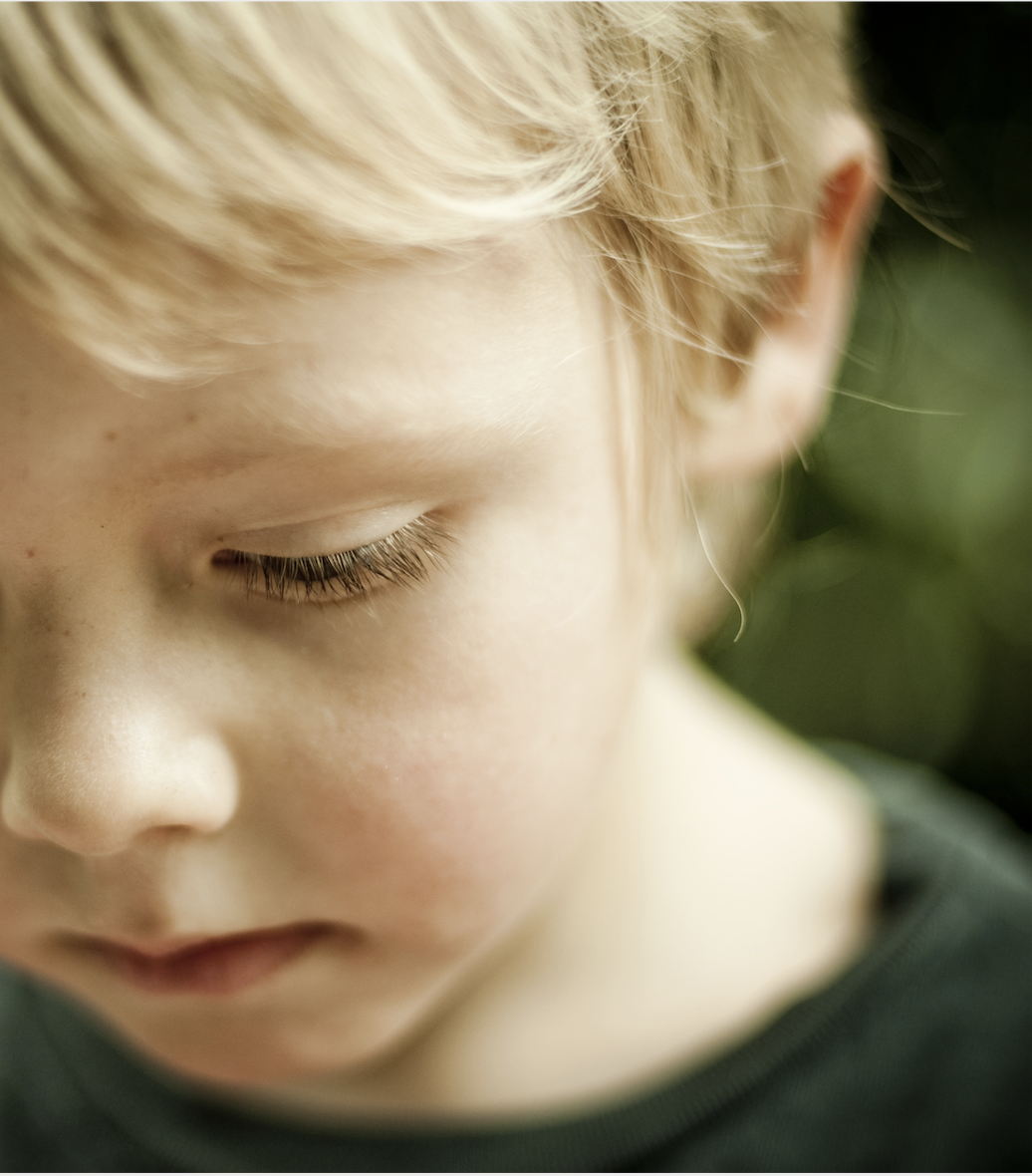
Last year, Campbell held a day-long workshop for School of Education and Dougherty Family College faculty on the principles of trauma-informed education led by David Read Johnson, a nationally known trauma expert.
Realizing that wasn’t enough, though, Campbell paved the way for the Continuing and Professional Education (CAPE) course Becoming Trauma-Informed: A Primer for Educators. The online, self-guided class was spearheaded with content from Johnson along with School of Education faculty Jayne Sommers and Muffet Trout. In the spring, Campbell is planning to include trauma-informed training elements in the curriculum for all education majors.
“We are going to make sure all of our students truly understand what trauma-informed care means,” Campbell said. “It is needed more than ever. Everyone’s experiencing trauma in multiple ways right now – not just because of COVID-19, but also racial injustice.”
Teachers can be the first line of defense to reduce trauma
Childhood trauma and its effects have been captured with a growing body of research, commonly referred to as Adverse Childhood Experiences (ACES). This could include trauma that is incident related, or more enduring related to violence, abuse or neglect; witnessing violence in the home or community; growing up in a household with substance abuse, homelessness, mental health problems or instability due to divorce or incarceration.
Trauma shows up in the classroom in many ways, from a student having trouble concentrating to expressing themselves through angry outbursts. What triggers these reactions is often unpredictable.
Insecurities caused by the COVID-19 pandemic also are affecting children, as are racial injustices brought to the forefront after the killing of George Floyd, said Johnson, an associate clinical professor in the Department of Psychiatry at Yale University School of Medicine, co-director of the Post Traumatic Stress Center, and CEO of Miss Kendra Programs that help schools to address trauma proactively.
“Nobody is saying that there’s a child coming back to school unfazed,” Johnson said. “It’s a reality every teacher has to be able to handle. If 100% of your kids are affected by something, you don’t need an expert; you’ve got to become the expert. That is what’s happening all around the country. Everyone realizes all the kids are coming back to school needing social-emotional supports.”
Johnson said trauma in schools is a public health issue and schools must take responsibility for the social and emotional health and development of our children, since educators are often the main adult outside of the home to regularly interact with some children.
“What’s happening now is the realization this is something school has to take over, not as experts in psychotherapy or PTSD, but on treating human beings ethically, developmentally appropriately, and in ways that are going to be support their social-emotional health,” he said. “Our social contract with the school has to change.”
Dr. MayKao Y. Hang, vice president of strategic initiatives and founding dean of the Morrison Family College of Health, which has programs in social work, counseling psychology, and public health, agrees with Johnson.
“The body keeps score when there is trauma. Experiencing trauma is like being blindfolded on a roller coaster and not knowing when the next big drop will be; there is both a physical and emotional response that feels uncontrollable,” Hang said. “Children look to the cues of the adults around them to reinforce what they are physically and emotionally experiencing to reanchor themselves. Across St. Thomas, we can teach strategies for how to effectively intervene right in the moment when a child may have their trauma triggered.”
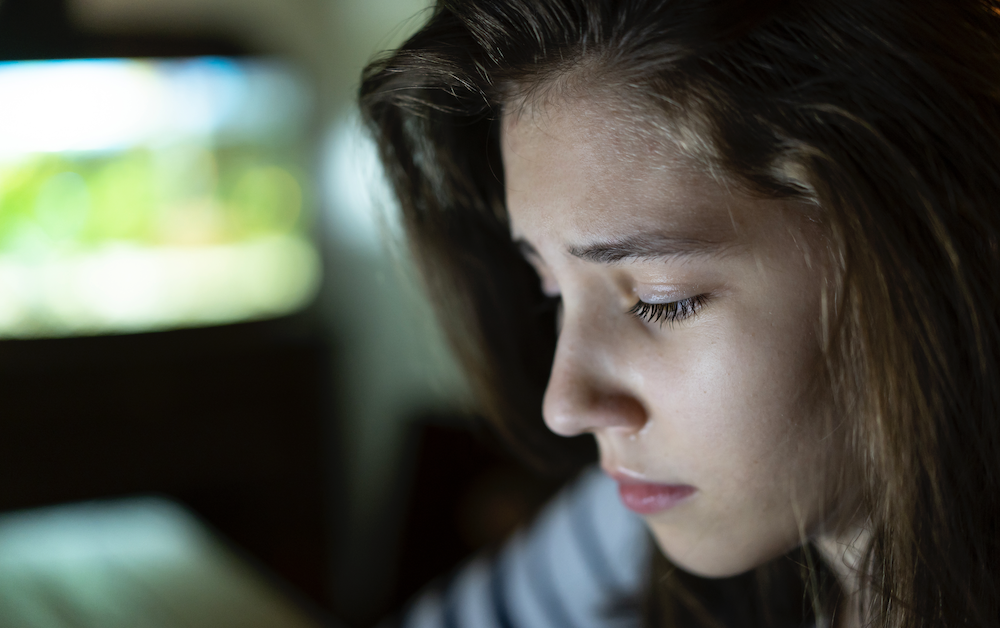
Trauma won’t be healed only through positive teacher intervention, said Hang, but equipping teachers with the training to help their students to self-regulate emotionally and physically with trauma-informed classroom responses, is a big step in the right direction because of the growing numbers of children living with trauma due to economic and social conditions beyond their control.

Benefits from training
Not only does trauma-informed education train teachers to help children cope at school (and know when they need to go outside the classroom for help), it also can make a difference in other areas of the educational system.
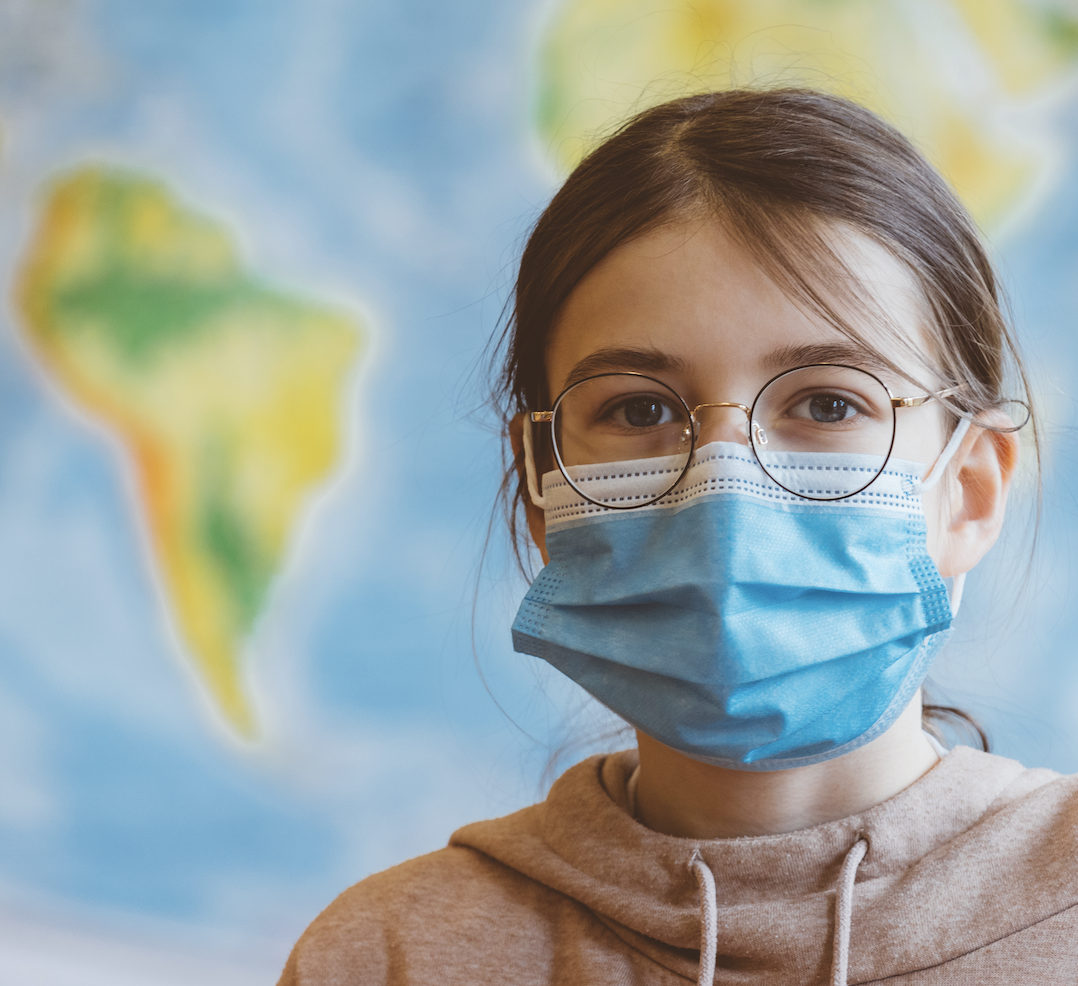
“Sometimes when parents come to school, it’s the first time they’ve been back since they were a child,” Campbell said. “If they had negative experiences, imagine how triggering that is as an adult. If all educators learn how to de-escalate situations and understand what trauma-informed care is, then they would do a better job communicating not only with the students in their class, but with the parents as well.”
Trauma-informed teaching also has the potential to retain teachers in the profession by helping them become well prepared and better equipped to deal with issues as they arise.
“Teachers are extremely stressed and overworked,” Campbell said. “Sometimes they don’t always understand why someone might get really upset. If educators have a better awareness of what they’re saying and doing, they can calm down the situation and proactively stop it from escalating in the first place.”
Trauma responses are physiological
The CAPE course, Becoming Trauma-Informed: A Primer for Educators, focuses on several areas including toxic stress, neuroscience, resiliency and the importance of prevention. Open to educational professionals, it aims to help them recognize behaviors and apply intervention strategies.
"We are looking to support the whole person by infusing trauma-informed care into how we prepare educators and leaders in both K-12 and higher education." – School of Education Dean Kathlene Holmes Campbell
Sommers, assistant professor and program director of educational leadership, said one of the values of the course is being able to recognize when behavior is trauma related. When you’re able to recognize trauma, a more empathetic response and appropriate strategies could be used instead of writing it off as simply bad behavior.
One of the biggest takeaways for teachers in K-12 and in higher education is to be aware of how trauma responses are physiological, said Trout, associate professor of teacher education.
“Students will move into the fight or flight mode,” Trout said. “And it’s really difficult to expect them to talk or think rationally or logically about what might be happening in that exact moment. Helping education professionals to ask the question of what might have happened in this person’s life to cause this trauma, as opposed to, say what is wrong with this person? And why don’t they just do what they’re supposed to do like everybody else right now?
“Trauma-informed education can give us names for some of these behaviors and highlight those that don’t make sense,” Trout added. “Instead of just crossing a person off, try to honor that they are here as a product of the many experiences they’ve had, just as I am the product of all the experiences I’ve had in my life.”
While the strategy differs some with college students as opposed to those in K-12, Sommers said there is value in building empathy and being able to support students in an informed way when they do bring trauma with them to college.
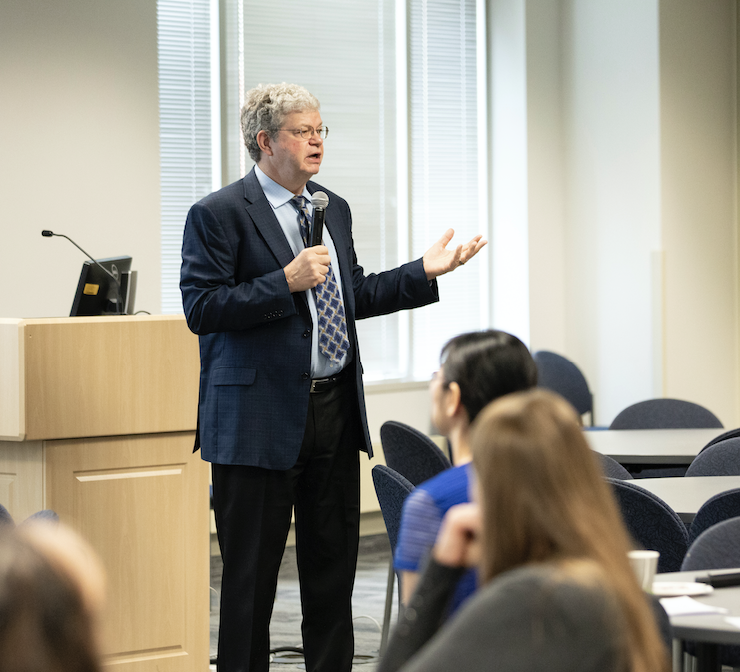
Yale Professor David Read Johnson speaks during a principles of trauma-informed education training session for the School of Education in 2019. Photo by Mark Brown.
“This course is not meant to overburden teachers or educators at any level with feeling like they need to provide explicit mental health support for students who are in that trauma state,” Sommers said. “At some point, what we will need to do is refer a student to someone who has the credentials and ability to really help them work through the reality of this trauma for themselves. But it’s intended to serve as a tool for us to help support students when they’re with us. And be realistic about what it is we can do for them.”
Raising ‘awareness to be compassionate’
When children are so distracted by worries that they have trouble learning, that could have consequences outside of the classroom, as well.
“If they’re not able to learn, they won’t be successful, and we won’t have a work-ready population at the end of high school,” Johnson said. “And it’s eating away at the success of the country.”
Johnson greatly respects Campbell and the work she and her staff are doing to promote trauma-informed training for educators.
“There are many courses done by psychologists that are being directed at teachers,” Johnson said. “But what’s happening here is that a School of Education within a university is making a move to integrate it into the education of teachers, as well as providing continuing ed opportunities for all the other teachers who have already come through.”
Campbell said the work the School of Education is doing around trauma-informed education aligns with St. Thomas’ mission and is in partnership with the Morrison Family College of Health to optimize their expertise in this area.
“We are always advocating for the common good,” she said. “It starts with respecting the dignity of everyone. We’re looking to support the whole person by infusing trauma-informed care into how we prepare educators and leaders in both K-12 and higher education.”
One of the hopes Trout has is that people will recognize we all have different experiences that bring us together.
“Sometimes we bring some of these traumatic experiences with us into many of our interactions with other people, whether we know it or not,” she said. “My hope is that this course raises awareness to be compassionate when we come together with others.”
Learn more about Continuing and Professional Education (CAPE) courses at cape.stthomas.edu.
